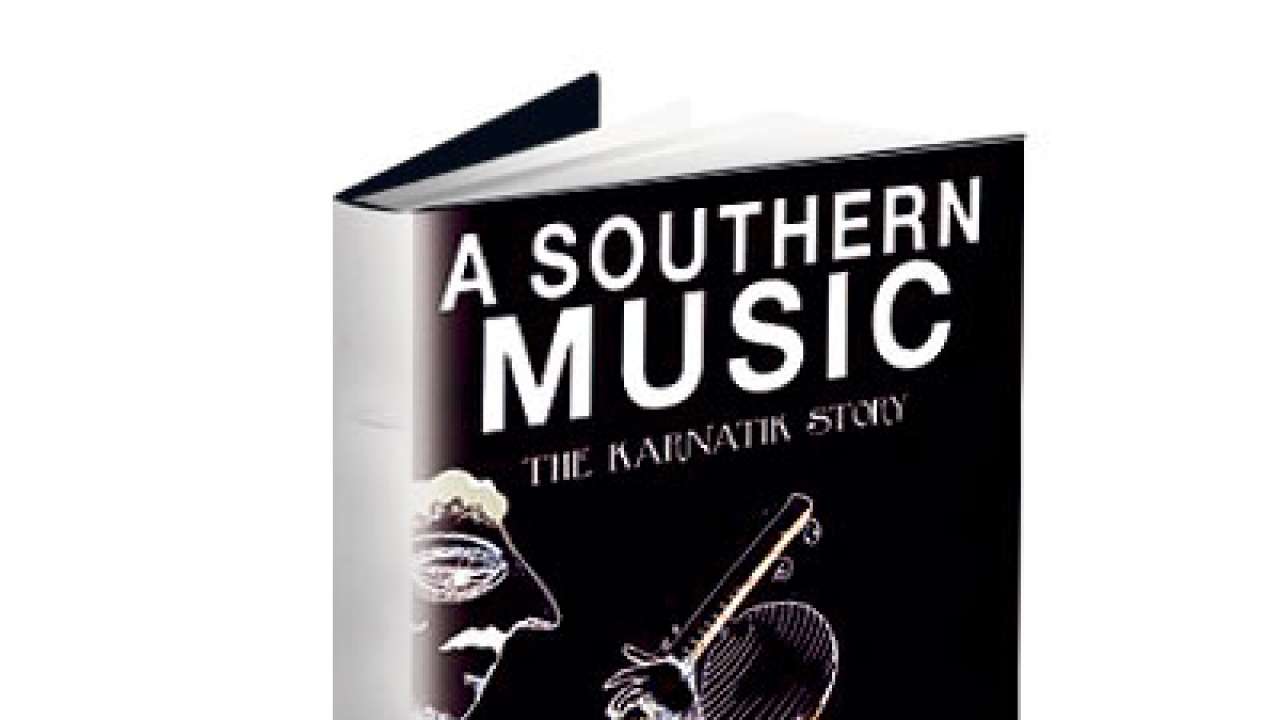
Book review: A Southern Music: The Karnatik Story
Author: TM Krishna
Publishing House: Harper India
Cost: Rs799
604 pages
To read a book like TM Krishna's A Southern Music — The Karnatik Story is like attending one of his full-blown concerts that comfortably breaches the four-hour mark, in a packed hall, with the audience barely batting an eyelid till the maestro is done. It doesn't matter if it's Chennai, Mumbai, Cleveland or anywhere else. It's captivating, powerful and engulfs the whole audience — irrespective of how clued in they are to the intricacies of a Karnatik Kutcheri. It may be undeniably technical at times for the layman but never once loses its magnetism in arresting the amateur senses of a new listener. You know you are in for a elevating experience and often with a surprise quotient packed in, when you are constantly trying to predict what comes next, but don't quite get it right.
Only Thodur Madabusi Krishna (TM Krishna or 'TMK' as he's popularly known), among the current crop of young Karnatik musicians could have come up with this idea of a book like this on southern India's classical music system (also referred as 'Carnatic' since the British colonials called it that), which is nothing less than an encyclopaedia itself. This sweeping exploration of the tradition of Karnatik music begins with a fundamental question: What is music? Taking nothing for granted and addressing readers from across the spectrum — musicians, musicologists as well as laypeople — TMK provides a path-breaking overview of south Indian classical music. Not just as a definitive study of the Karnatik classical system and the works, but as an overall encapsulation of varied forms of music and even dance, that has fused well along with this classical form, drawing inspirations from it.
He also suggests the welcoming nature of this art form, in terms of accepting foreign instruments as one of its own and the constant evolution within this system, viz. the violin, clarinet and saxophone.
One of the beauties of this book lies in TMK's commendable effort to get his audience on a chance visit to an artist's imagination, its limitless horizons with unexplored boundaries. Emphasising a lot on aesthetics involved in appreciating an art form as diverse and oceanic like our classical music, TMK tries to imbibe the readers with the aspect of understanding the idea and beauty of the classical form.
Like a Karnatik concert, TMK has partitioned A Southern Music into three sections — experience, context and history; suggesting that the reader have the 'experience' before moving on to the 'history'. Just like you don't expect an artist to start a kutcheri with a Thillana and end it with a Varnam.
Also thrown into the mix are some honest, yet controversial observations and facts from TMK on how society and the politics of caste and sexism have had a constant ride along with the evolution of the classical music scene, not to mention criticisms on some of the kutcheri bani itself. "An art music presentation has no room for light miscellanies like tukkadas, and a kutcheri is not a variety entertainment show or a circus presentation where you need to experience the frown of the lion and the snigger of a clown," avers TMK, who also wonders whether an atheist or a non-Hindu can be a Karnatik musician.
Nonetheless, this book is as brave and intelligent as its artistic author himself; an apt promotion for the Karnatik music brand, not that it ever lacked one. This is a must have for anybody even remotely associated with music and not just people who are pursuing it. More importantly, this book should be on the shelves of parents who have enrolled their children in learning this art form — be it vocal, instrument, percussion or dance. Their engagement in understanding the music will help them appreciate their children in pursuing it.
Considering Nobel laureate Amartya Sen has himself has said, "What you get from the book is a deeper sense of experience, a better understanding context and, of course, a kind of commanding view of the history of the discipline", if you haven't got a copy of this book yet, one can only recommend you do so immediately.
—(Ashwin KM is a Karnatik vocalist)